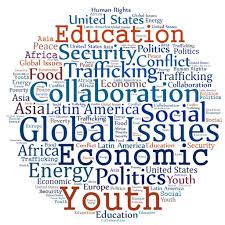Global Philanthropy and Corporate Social Responsibility: Synergistic Strategies for Sustainable Poverty Alleviation
Global poverty and inequality represent significant challenges to sustainable development. This article analyzes the pivotal roles of global philanthropy and corporate social responsibility (CSR) in addressing these issues. We define global philanthropy as the voluntary giving of resources – financial, material, or human capital – by individuals, foundations, and other non-governmental organizations (NGOs) to address global social problems. CSR, conversely, refers to a company's commitment to operate ethically and contribute positively to society, encompassing environmental sustainability, social justice, and economic development. This analysis will explore how the synergistic application of these two concepts can facilitate sustainable poverty alleviation. The theoretical framework utilizes the Stakeholder Theory, which emphasizes the interconnectedness of businesses with various stakeholders, including communities impacted by poverty, and Resource Dependence Theory, highlighting the reliance of organizations on external resources and the importance of collaborative partnerships for effective resource allocation. We will also touch upon diffusion of innovation theory, examining how new technologies and approaches spread and impact poverty alleviation initiatives.
Strategic Partnerships: Amplifying Impact through Collaborative Action
Effective poverty alleviation necessitates a collaborative approach. Resource Dependence Theory posits that organizations rely on external resources and partnerships. In this context, strategic partnerships between philanthropic organizations, corporations, governments, and local communities are crucial. Such collaborations leverage diverse resources, expertise, and perspectives, creating a synergistic effect that surpasses the sum of individual efforts. This collaborative approach ensures efficient resource allocation, reduces duplication of effort, and fosters a shared sense of ownership and accountability. For example, a multinational corporation might partner with a local NGO and a government agency to implement a sustainable agriculture project, combining corporate funding with the NGO's community expertise and the government's regulatory framework.
Investing in Human Capital: Education, Healthcare, and Skills Development
Investing in human capital is fundamental to breaking the cycle of poverty. Philanthropic and CSR initiatives supporting education, healthcare, and skills development lay a strong foundation for sustainable economic growth. Quality education empowers individuals with knowledge and skills, enhancing their employability and future earning potential. Access to quality healthcare ensures a healthy workforce and reduces the economic burden of illness. Skill-building programs equip individuals with marketable abilities, enhancing their opportunities for gainful employment. For instance, scholarships provided by corporations can enable individuals to pursue higher education, while CSR-funded health clinics can improve access to healthcare, improving individual well-being and overall community productivity. This aligns with Human Capital Theory, which emphasizes the critical role of education and skills in economic development.
Empowering Communities: Participatory Development and Local Ownership
Sustainable poverty alleviation requires prioritizing community engagement and participatory development. Meaningful involvement of local communities in the planning, implementation, and monitoring of projects is essential to ensure relevance, ownership, and long-term sustainability. This participatory approach fosters a sense of ownership and empowers communities to actively shape their own futures. For example, community-based participatory research methods can be used to identify local priorities and design initiatives tailored to specific needs. This approach effectively addresses the challenges posed by top-down development models, aligning with the principles of community development and empowerment.
Leveraging Technology for Inclusive Development and Enhanced Efficiency
Technological advancements offer transformative potential for poverty alleviation. Mobile banking, online education platforms, and precision agriculture technologies can efficiently reach marginalized communities, deliver essential services, and promote financial inclusion. For example, mobile money transfer systems can facilitate access to financial services, empowering individuals to manage their finances and participate in the formal economy. This reflects the principles of the diffusion of innovation theory, demonstrating how technological advancements can be harnessed to overcome geographical barriers and promote greater equity. The utilization of data analytics can also support decision-making and efficient resource allocation within poverty alleviation projects.
Promoting Gender Equality and Social Inclusion: Addressing Systemic Inequities
Gender equality and social inclusion are paramount for achieving sustainable development. Philanthropic and CSR programs should actively address systemic inequalities by providing equal access to resources, opportunities, and decision-making processes for women, marginalized groups, and other vulnerable populations. Empowering women is particularly crucial, as studies demonstrate that women's empowerment is strongly correlated with poverty reduction and sustainable development. Targeted interventions can ensure that benefits reach the most vulnerable populations and contribute to a more equitable society. This emphasis on inclusion aligns with the principles of social justice and human rights.
Environmental Sustainability: A Critical Component of Long-Term Development
Environmental sustainability is inextricably linked to poverty alleviation. Climate change, resource depletion, and environmental degradation disproportionately impact vulnerable populations. Philanthropic and CSR initiatives should incorporate environmental considerations into all aspects of poverty reduction efforts, promoting sustainable agriculture, renewable energy, and climate change mitigation. This holistic approach ensures that poverty alleviation strategies do not compromise long-term environmental sustainability, supporting the concept of sustainable development and the integration of economic, social, and environmental considerations.
Conclusion and Recommendations: A Path Towards Sustainable Poverty Alleviation
This analysis reveals that effective poverty alleviation requires a multifaceted approach leveraging the combined strengths of global philanthropy and CSR. Strategic partnerships, investments in human capital, community empowerment, technology adoption, gender equality, and environmental sustainability are key elements of a comprehensive strategy. Future research should focus on evaluating the long-term impact of different collaborative models, examining the role of technology in fostering financial inclusion, and developing better metrics for measuring the effectiveness of poverty alleviation initiatives. Recommendations include increasing investment in innovative approaches, strengthening collaborative partnerships, promoting data-driven decision-making, and fostering a culture of social responsibility among businesses and individuals. The impacts of successful strategies will be profound, including reduced poverty rates, increased social equity, improved health outcomes, and enhanced environmental sustainability. These approaches have broad applicability across diverse contexts, provided they are adapted to local needs and realities. A commitment to evidence-based practice and ongoing evaluation is essential to optimize impact and ensure that resources are used effectively.
Reader Pool: What are the most effective strategies for fostering long-term, sustainable partnerships between philanthropic organizations, corporations, and local communities in the context of poverty alleviation?





No comments yet. Be the first to share your thoughts!